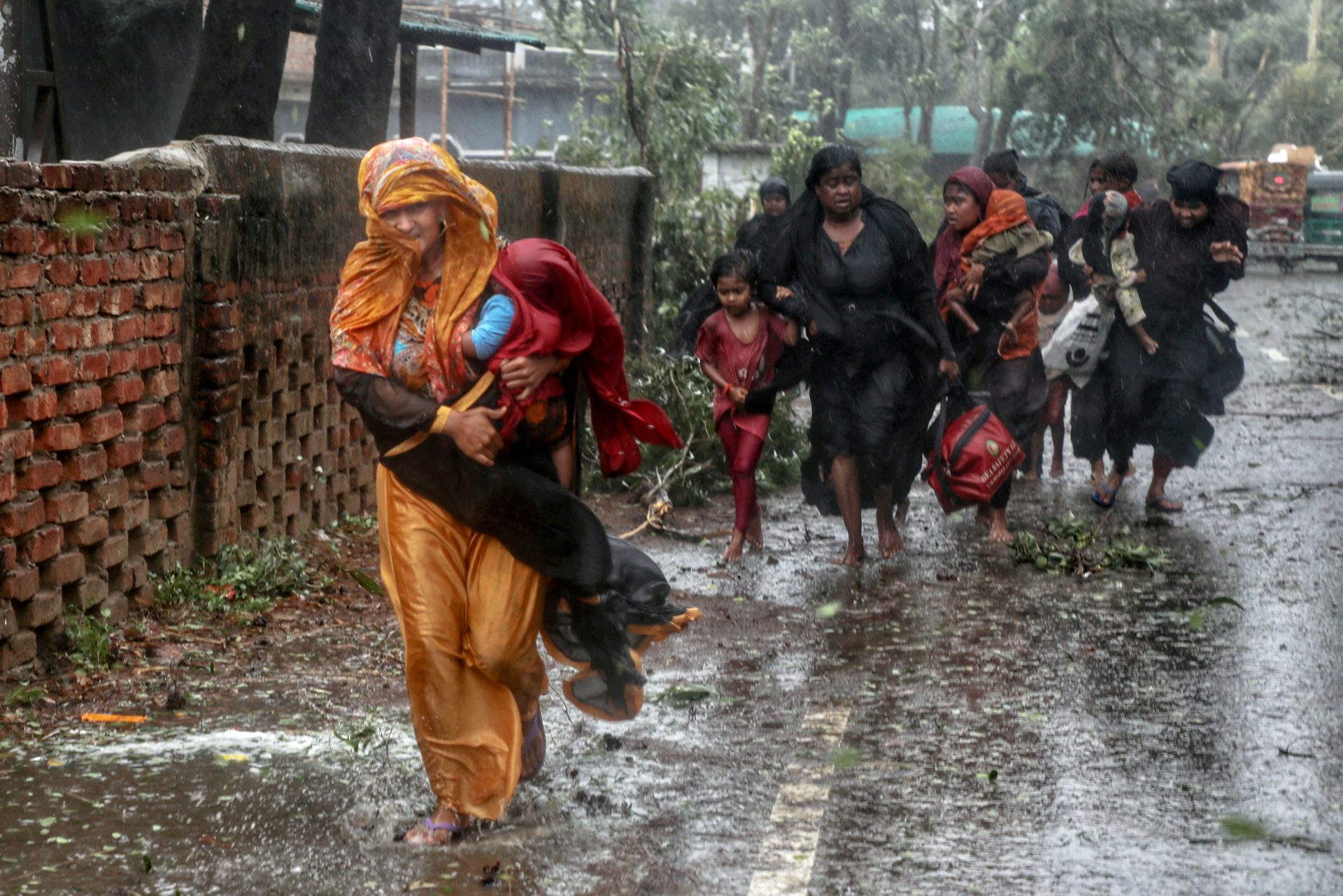Cyclone Mocha struck the Bay of Bengal on Sunday 14 May, between Kyaukphyu, near Sittwe in Myanmar’s Rakhine State, and Cox’s Bazar in Bangladesh. Strong winds of up to 250 km/h and heavy rains have increased preexisting humanitarian needs. Before the cyclone hit, more than seven million people were already in need of humanitarian assistance in the affected areas. Despite multiple evacuations and efforts in recent days in Myanmar and Bangladesh to mitigate the damages as much as possible, the impact on already vulnerable and displaced communities in the region is a major concern.
“The situation for the 232,100 displaced people in Rakhine State in Myanmar is particularly worrying as many of the camps and displacement sites are located in low-lying coastal areas and have been hit hard by the storm surges caused by the cyclone. Bangladesh seems to have been less affected but we are closely monitoring the precarious situation of nearly one million Rohingya in the refugee camps of Cox’s Bazar,” explained Philippe Hamel, Action Against Hunger’s Regional Director of Operations for Asia.
Following the cyclone, an emergency team began conducting initial assessments in Teknaf, Cox’s Bazar region, in Bangladesh. The team observed a significant number of destroyed or damaged shelters and the partial or total destruction of a number of water and sanitation structures. Action Against Hunger will address these urgent needs.
In Rakhine State the situation is concerning, especially in the cities of Sittwe, Pauktaw, Buthidaung and Maungdaw which appear to have been significantly affected.
“Telecommunications in Myanmar are still difficult. However, initial information from the field indicates that many electricity poles are damaged, and many trees have been uprooted and are blocking access roads to Sittwe, which seems to have been severely affected by the cyclone. We also fear that a significant number of water and sanitation structures have been destroyed,” describes Philippe Hamel.
In Sittwe, Action Against Hunger’s office and warehouse were damaged and flooded. The priority for Action Against Hunger is to contact and mobilize all of its staff to repair the office and warehouse in order to begin assessments and humanitarian operations in support of the communities that have been affected by the cyclone.
“The destruction of essential water, sanitation and hygiene facilities, combined with gaps in hygiene, overcrowded evacuation shelters, continued displacement and potential relocation, greatly increases the risk of waterborne disease outbreaks. The priority needs of those affected by the cyclone include access to shelter, food, water, sanitation, and hygiene,” adds Philippe Hamel.
The needs of more than one million displaced people and the situation of communities in northwestern Myanmar are also expected to worsen in the coming days, as the cyclone is likely to move inland with heavy rains. Displaced people in the northwest are already living in precarious conditions in camps, displacement sites or in the forests, often without adequate shelter.
Action Against Hunger has been working in Myanmar since 1994, particularly on the issues of nutrition, food security, water, hygiene and sanitation programs implemented in Rakhine State. Action Against Hunger’s operations in Bangladesh began in 2006 and have focused in recent years on meeting the needs of Rohingya refugees and host communities in the Cox’s Bazar region. In Bangladesh, Action Against Hunger teams are also working in the Sathkira and Barguna regions to build the capacity of local communities to face and respond to natural disasters.


